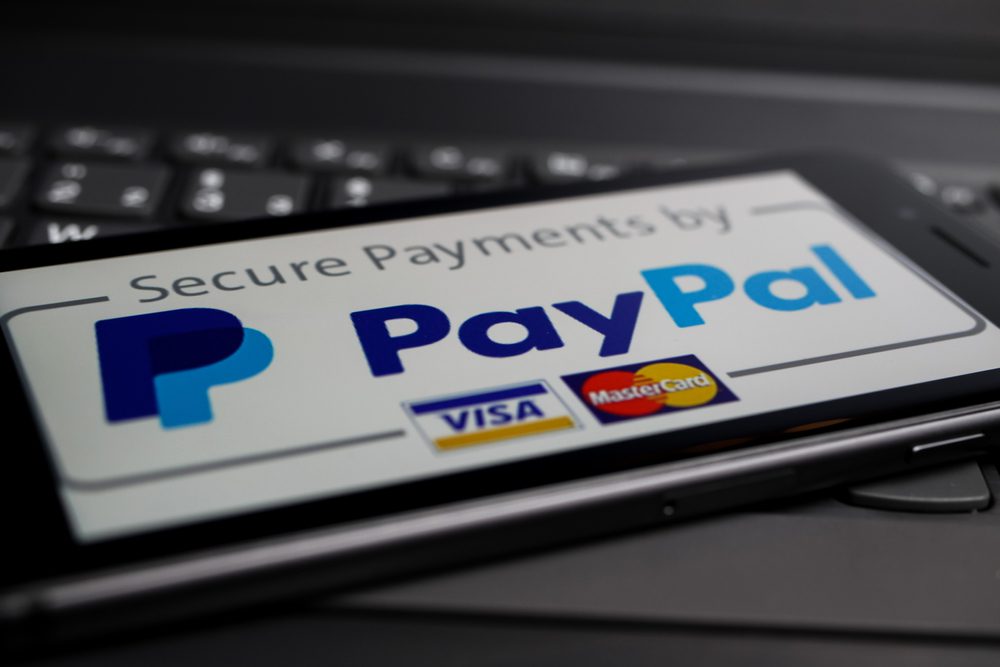Digital payment systems such as PayPal have become more popular than ever. Even so, they only open the road for scammers, who are closely following your money. If you want to use PayPal without worrying about getting scammed, we’ll tell you how to do it!
With over 400 million users, PayPal is one of the best ways through which scammers can access other people’s money. There are so many online scams these days that involve payment apps, such as Cash App scams, Venmo scams, and also Zelle scams, which open the gate to all sorts of scams just because their users don’t understand how these services are working.
However, this doesn’t mean that you need to stop using PayPal. You can still take advantage of the benefits it offers, especially now that you’re about to learn exactly how scammers can get to you and look after those things!

What’s PayPal?
PayPal is one of the first and most popular all-in-one digital payment platforms, that comes with a great alternative to traditional banking methods. If you want to create a PayPal account, you have to link your bank account or your credit card to their system.
And starting from here, you can easily login through your computer or any smart device, and start making all sorts of purchases from third-party retailers. Besides that, you can also accept payments and deposits, or even transfer money or cryptocurrency between your accounts.
How can you get scammed on PayPal?
Unfortunately, it is still easy for scammers to steal your money or any other financial information through PayPal. “There are many scams and fraud attempts that are being deployed by various identity criminals” on the company’s platform, as Eva Velasquez, president, and CEO of Identity Theft Resource Center has explained.
But you need to keep in mind that, just like PayPal, there are other places where you could get scammed. It is very important to note how easily you can get scammed on any site or service, such as Amazon, Facebook Marketplace, phone call scams, and also gift card scams.
What are the most common PayPal scams?
Indeed, fraudsters can sometimes get to be very convincing, but their scams always have a common theme, which makes them easier to identify. Don’t worry! No matter how clever these fraudsters might think they are, we will always outsmart them!

Order confirmation scam
The most popular PayPal scams are usually made through phishing emails. So here’s how it works: fraudsters create a fake email address that seems to be from PayPal. Then, they send you a certain email that looks like a regular order confirmation for a recent purchase you may or may not have done.
They will require you to check the status of the order, by logging in to your account through a certain link that’s inserted in the email. Even if these phishing emails might take many forms, “what they have in common is that the criminal is after one thing” according to Karim Hijazi, CEO of the cybersecurity company Prevailion and the former contractor for the U.S. intelligence community.
As he explained, “they are trying to steal your PayPal login credentials through a spoofed web page.” When the scammer succeeds in getting your login information, they can easily use it to log in to your account and make all kinds of purchases.
Fake fraud alert scam
Be careful with any unsolicited text messages that might seem like fraud alert notifications from PayPal. They’re also known as “smishing” attacks, and they’re very difficult to spot as there aren’t two messages that look the same.
Some might warn you that someone is trying to get into your account, and others might report suspicious activity on your profile. “There’s a wide range of fake alerts that scammers might use, and every one of them is different.”
It’s worth mentioning that PayPal doesn’t send text messages or emails for one-time logic codes, or two-factor authentication, so receiving such a message is a clear sign of a phishing attempt.
Unsolicited payment or transfer request scam
Before you click on the button and accept an unexpected payment or transfer request on PayPal, make sure you carefully read the message. Some scammers might create profiles that impersonate real people, and they can even go so far as to steal other usernames and profile pictures.
We highly recommend you report the scam to PayPal in case you accept any unknown request. Unfortunately, PayPal can’t guarantee that you’ll see your money back.
That’s why it’s so important to avoid getting scammed in the beginning and always be the one that initiates transactions and never takes unsolicited payments or transfer requests from anybody.

Password reset request scam
If you got a password reset notification from PayPal out of nowhere, make sure you don’t click on any links that could be hidden in the text message or email, as Hamerstone recommended.
As an alternative, you could try to log in directly through PayPal’s app or website on your browser and change the password right away, just in case your account could have been already hacked.
Scammers might create fake password reset alerts that resemble the ones from PayPal. If you click on the link attached to the text message, you might accidentally share your login credentials with the fraudsters and download dangerous malware.
Fake charity scam
Another trick they might pull on you is using fake charities to ask for donations from unsuspecting users. The fraudster might create a webpage for a phony charity organization, then contact various victims, asking for donations.
They will go as far as to show you forged confirmation emails and even receipts, to make it seem more credible, and by that time, they might have taken your money already.
Even if these fake charity sites are constantly becoming more and more convincing, there are always ways to spot fake donation scams. Plus, the best thing you can do is to stick to a couple of charities that you already know and worked with in the past.
Promotional offer scam
Identical to fraud alerts and order confirmation emails, this scam is done through a spoofed email address or phone number that appears to be from PayPal. The message will notify you that they have qualified for a promotional offer and that the money has been already deposited into your account.
The fraudster is hoping to trick you into entering the PayPal login credential on a fake webpage that will, later on, infect your computer or your phone with a virus.
Refund request scam
Sometimes, receiving a random and unknown PayPal transfer can simply be an honest mistake. As expected, scammers will take advantage of that and try to fool you into giving them the money back. You might wonder: how did they know I received the random money?
Well, they could use stolen financial information from another hacked PayPal account, transfer several hundred to yours, and then send you a message that requires you to send the money back. The money comes back to them, and they end up with your money and the other victim’s money as well.
If you found this article useful, we also recommend: 8 DANGEROUS FINANCIAL SCAMS TARGETING SENIORS














One Response
I have had a charge on my PayPal account and it wasn’t me. I can’t figure out what it is besides that it’s $600 charge